Related Research Articles

South Korea competed as Korea at the 1992 Summer Olympics in Barcelona, Spain. 226 competitors, 154 men and 72 women, took part in 134 events in 24 sports.
Seoul Institute of the Arts is a prominent educational institution specializing in the Arts located in Ansan, Gyeonggi Province, South Korea. The school has nurtured many graduates who are actively working in art related fields within Korea as well as internationally. The Namsan campus in the heart of Seoul is used for presentation of arts productions and convergence with industry. The Ansan Campus opened in 2001 and is used for educational training, which aims to tear down barriers between disciplines, genres, and majors. The Institute continues to be a forerunner in globalization of Korean arts and creation of new forms of arts.
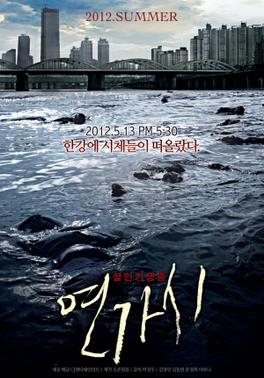
Deranged is a 2012 South Korean medical disaster thriller film starring Kim Myung-min, Kim Dong-wan, Moon Jung-hee and Lee Hanee. It is Korea's first medical thriller on an infectious disease epidemic. The film was directed by Park Jung-woo and produced by Lim Ji-young and Oz One Film. Distributed by CJ E&M, the film was released on July 5, 2012, and runs at 109 minutes.

Quiz of God is a South Korean television series broadcast on cable channel OCN. It was the first medical/forensic crime investigation drama to air in Korea. The series follows genius but eccentric neurosurgeon and forensic doctor Han Jin-woo and his team as they solve suspicious deaths and unravel mysteries involving rare diseases.

The Target is a 2014 South Korean action thriller film starring Ryu Seung-ryong, Lee Jin-wook, Yoo Jun-sang and Kim Sung-ryung, and directed by Yoon Hong-seung. It is a remake of the 2010 French film Point Blank.
KPlus is a South Korean model and actors management company established by fashion model-turned-CEO Go Eun-kyung in 2008.

A Beautiful Mind is a South Korean television series starring Jang Hyuk, Park So-dam, Yoon Hyun-min and Park Se-young. It aired from June 20 to August 8, 2016, on KBS2's Mondays and Tuesdays at 22:00 KST.
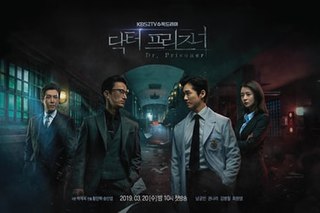
Doctor Prisoner is a 2019 South Korean television series starring Namkoong Min, Kwon Nara, Choi Won-young and Kim Byung-chul. It aired on KBS2's Wednesdays and Thursdays at 22:00 (KST) from March 20 to May 15, 2019.

Confession is a 2019 South Korean television series starring Lee Jun-ho, Yoo Jae-myung and Shin Hyun-been. It aired on tvN from March 23 to May 12, 2019.
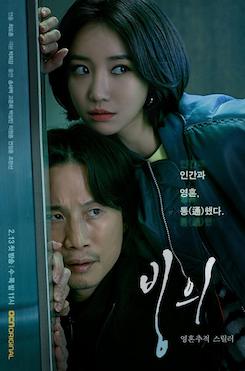
Possessed is a 2019 South Korean television series starring Song Sae-byeok, Go Joon-hee, Yeon Jung-hoon and Jo Han-sun. It aired on OCN's Wednesdays and Thursdays at 23:00 KST from March 6 to April 25, 2019.

Doctor John is a 2019 South Korean television series starring Ji Sung, Lee Se-young, Lee Kyu-hyung, and Hwang Hee. It is based on the Japanese novel On Hand of God by Yo Kusakabe and aired on SBS from July 19 to September 7, 2019.

Once Again is a 2020 South Korean family drama television series starring Lee Sang-yeob and Lee Min-jung. The drama aired on KBS2 from March 28 to September 13, 2020, every Saturday and Sunday from 19:55 to 21:15 (KST).
Shin Hyun-young is a South Korean doctor specialised in Family medicine currently serving as a Democratic member of National Assembly.
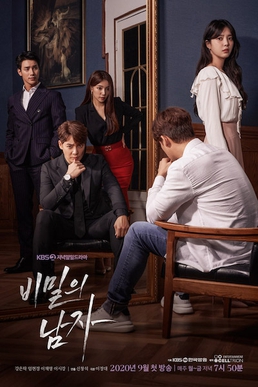
Man in a Veil is a South Korean television series starring Kang Eun-tak and Uhm Hyun-kyung. The series aired on KBS2 from 7 September 2020 to 10 February 2021.
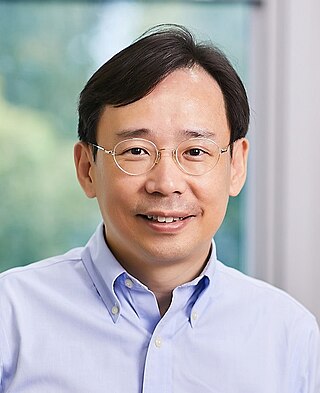
Eui-Cheol Shin is a South Korean medical immunologist, academic, and author. He is a professor at the Graduate School of Medical Science and Engineering at the Korea Advanced Institute of Science and Technology (KAIST), and director of The Center for Viral Immunology at the Institute for Basic Science (IBS), a Korean government-funded research institute.
References
- ↑ Seo, Ji-Hyun; Bae, Hwa-ok; Kim, Bong Jo; Huh, Sun; Ahn, Young Joon; Jung, Sung Soo; Kim, Chanwoong; Im, Sunju; Kim, Jae-Bum; Cho, Seong-Joon; Han, Hee Chul; Lee, Young-Mee (8 February 2022). "Burnout of Faculty Members of Medical Schools in Korea". Journal of Korean Medical Science. 37 (9): e74. doi:10.3346/jkms.2022.37.e74. PMC 8901883 . PMID 35257529.
- ↑ Kim, Hyun Ah; Jung, Sung Hoon; Park, In Young; Kang, Seong Hun (1 September 2020). "Hourly wages of physicians within medical fees based on the Korean relative value unit system". The Korean Journal of Internal Medicine. 35 (5): 1238–1244. doi:10.3904/kjim.2018.452. PMC 7487311 . PMID 31870135.
- ↑ "The Moon Jae-in Government's War Against Young Medical Doctors in South Korea...the Cuba Model?". East Asia Research Center. 9 September 2020. Retrieved 11 February 2023.
- ↑ Cha, Sangmi (7 August 2020). "S.Korean doctors strike over plan to boost medical student numbers". Reuters. Retrieved 11 February 2023.
- ↑ "Thousands of South Korean doctors strike amid COVID-19 resurgence". www.aljazeera.com. 26 Aug 2020. Retrieved 11 February 2023.
- ↑ Cho, Yo Han; Cho, Jae Wan; Ryoo, Hyun Wook; Moon, Sungbae; Kim, Jung Ho; Lee, Sang-Hun; Jang, Tae Chang; Lee, Dong Eun (31 January 2022). "Impact of an emergency department resident strike during the coronavirus disease 2019 (COVID-19) pandemic in Daegu, South Korea: a retrospective cross-sectional study". Journal of Yeungnam Medical Science. 39 (1): 31–38. doi:10.12701/yujm.2021.01130. PMC 8895968 . PMID 34411473.